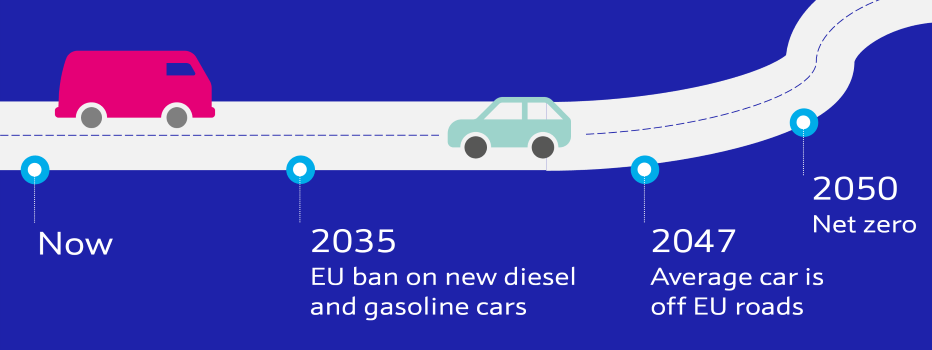Five reasons clean air legislation still matters as we journey to net zero
Andy Walker, JM’s Technology Market Insights Director, explains why emission control legislation is key to protecting people and the planet as we transition to net zero.
19 May 2023
Since the 1970s, society has been on a journey to reduce vehicle pollution, especially in our towns and cities. Leaders in emissions control like Johnson Matthey have developed technology in tandem with increasingly stringent legislation to improve our air quality, so everyone across the globe can breathe cleaner air.
We all know the future lies in zero emissions transport, from battery electric vehicles (EVs) for light duty to fuel cell EVs for heavy duty. But we also know it will take time to make the transition. Millions of diesel and gasoline vehicles will still be on our roads for years to come and we must do everything we can to minimise their impact on health and the environment.
Sound vehicle emissions legislation, which includes ambitious pollutant limits for all vehicle types from cars and vans to trucks and buses, is key to protecting people and the planet as we transition to net zero.
1) Clean air saves lives
Air pollution is one of the greatest environmental risks to health. Around four million lives are cut short every year by conditions directly caused by outdoor air pollution.1 Legislation that controls and reduces vehicle pollution has life-saving impacts.
2) Net zero won’t happen overnight
Despite incoming de facto bans on new diesel and gasoline vehicles, used vehicles will still be on our roads for years to come. In fact, in the EU, cars stay on the road for 12 years on average and it’s almost 14 years for trucks.2 Plus, these vehicles often see a ‘second life’ when sold on to other regions. We need legislation to bridge the gap as we transition to zero emission transport.

3) Clean transport should be accessible to all
Buying a new electric car is an expensive upfront cost and, with the rising cost of living, an unaffordable option for many. Gasoline and diesel or hybrid vehicles fitted with emissions control technology can provide a more affordable clean mobility option.3 So emissions legislation has a major role to play in making the transition to zero emission transport accessible to everyone.
4) The technology is proven and ready-to-go
Why wait? Autocatalyst technology developed by industry leaders like Johnson Matthey is already being used successfully and achieving near-zero emissions.4 Governments and policymakers need to continue to enact sound legislation with ambitious but achievable emissions limits based on proven technology.
5) Net zero transport doesn’t have to be just electric
Technology is emerging for clean internal combustion engines that use carbon neutral fuels, for example renewable gasoline or pure hydrogen. Burning hydrogen directly means no carbon emissions, but the temperature of the reaction does produce nitrogen oxides that will need to be controlled using autocatalysts. Legislation that drives development of emissions control technology will help build the clean transport of the future.
1 World Health Organisation
2 European Automobile Manufacturers’ Association
3 Association for Emissions Control by Catalyst
4 Technology for Sustainable Mobility



